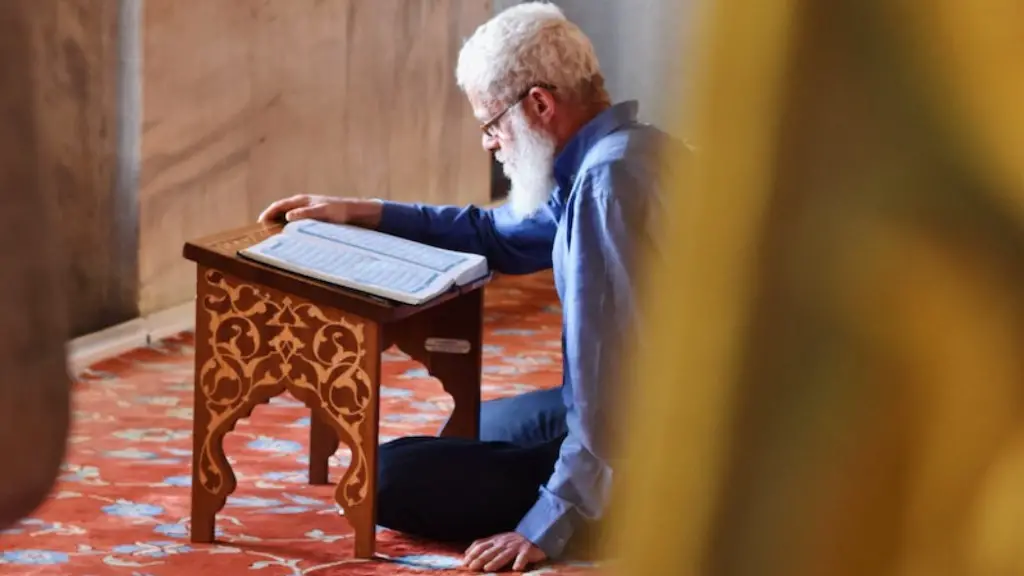When it comes to money, Islam has a clear and concise set of guidelines. One of these guidelines is the concept of riba, or interest. Riba is forbidden in Islam, and as such, any money that is earned through interest cannot be donated.
Yes, you can donate interest money in Islam.
What can be done with interest money in Islam?
Interest (Riba) is forbidden in Islam, both receiving and paying it. Many of us can end up accumulating interest through our bank accounts even if we don’t want it. So what should we do with Interest money? Since it is not permissible to utilise interest for one’s own benefit, one should donate it to charity.
There are a few things to keep in mind when it comes to interest and Islam. First and foremost, both the payment of interest and the receipt of interest payments are considered to be contrary to Islamic Sharia rules. The reason Islam does not permit interest is that it is considered to be a means through which the poor remain poor, and the rich get richer. In other words, it is seen as an unfair and unjust system.
Of course, there are always exceptions to every rule. There may be some instances where paying or receiving interest is permissible, but these are few and far between. In general, it is best to avoid interest altogether if you want to stay on the safe side.
Can interest money be given to relatives
It is permissible for you to give the interest to your brother to pay off his debts, whether you are obliged to spend on him or not. As for giving him the interest to spend on himself and his family, not to pay off his debts, that is permissible so long as it is not obligatory for you to spend on him.
It is important to remember that Riba is haram, and as such, any Riba that is earned should not be used for personal gain. An acceptable way to spend Riba is to donate it to charity. Rewards will not be received for doing so, but by donating Riba to a charitable cause, your wealth will be cleansed and you will have disposed of the haram Riba in a way that does not benefit yourself.
Can I give interest money to Masjid?
The Quran and Hadith are clear in their condemnation of riba, or interest. Allah says in the Quran: “O you who believe! Be afraid of Allah and give up what remains of your demand for usury, if you are indeed believers. If you do it not, take notice of war from Allah and His Messenger. But if you repent, you shall have your capital back. Neither shall you make the owners suffer loss, nor shall you be suffered loss” (Quran 2:278-279).
The Prophet Muhammad (peace be upon him) said: “The taking of riba is like taking the flesh of a dead animal” (Bukhari and Muslim).
Riba, or interest, is not considered good in the Islamic tenets, and in most sections it is considered ‘haraam’ (forbidden).
Riba refers to the practice of lending money with interest. This is forbidden in Islam because it is seen as exploiting the poor and taking advantage of their situation. Riba is often cited as one of the main reasons for the economic inequality in Muslim countries.
There are two types of riba:
1. Riba al-fadl: This is when someone lends money and the borrower agrees to pay back more than they borrowed. This is seen as taking advantage of the borrower’s need for money and is therefore not allowed.
2. Riba al-nasa’: This is when someone lends money and the borrower agrees to pay back the money with interest. This is seen as exploiting the borrower and is therefore not allowed.
Why can’t Muslims pay interest?
In Islamic finance, riba refers to interest charged on loans or deposits. Religious practice forbids riba, even at low interest rates, as both illegal and unethical or usurious. Islamic banking has provided several workarounds to accommodate financial transactions without charging explicit interest. These workarounds include charging fees for services, using commodity murabahah transactions, and employing wakalah contracts.
Interest is prohibited in Islam because it is seen as a way to make money without working for it. This goes against the principle of equality, as interest rates would allow some people to make more money than others without having to work for it. This would also lead to people taking on more debt than they can afford, which is another issue that is prohibited in Islam.
Is Bank interest Haram in Islam
Interest or “riba” is seen as a form of exploitation by some Muslims, as it allows lenders to charge more for the use of their money than what the borrower originally agreed to pay. This is seen as unjust and is therefore forbidden by Islam. However, there is some debate among Muslims on whether interest is actually riba and whether it is forbidden by Islam. Some Muslims believe that interest is allowable if it is fair and reasonable, and does not exploit the borrower.
This is money lending which is illegal in India, if your friend has license for lending the money on interest then only he is right otherwise not. There is no such cap. Once you execute an agreement or promissory note wherein you agree to repay the loan at a particular rate of interest you are bound by it.
How do you give someone interest in money?
P2P lending is a great way to earn interest on your money. You can lend to individuals or enterprises, with a variety of needs and business plans. The interest rates are reasonable, and you can usually choose how long you want to lend for. There is some risk involved, as with any investment, but if you do your research and choose a reputable platform, you can minimize your risk and maximize your return.
Interest is the amount of money that the borrower pays to the lender in exchange for the use of the lender’s money. The borrower pays interest, and the lender receives it.
What is the difference between interest and Riba
Interest is an economic concept that refers to the rate of return on an investment over time. The rate of return is the amount of money earned on an investment over a period of time, usually expressed as a percentage.
Riba is an Islamic legal term that refers to the taking of interest on a loan. In Islam, riba is considered to be a form of exploitation and is therefore prohibited.
According to the ruling of the Islamic scholars, it is not permissible to open an interest based account in order to pay off taxes with this interest. This is because the act of taking interest is considered as riba, which is Haram in Islam.
Is crypto haram?
It is interesting to note that under Sharia law, a currency is supposed to be a medium of exchange and not a means of generating profits. Therefore, Muslims are not allowed to accept crypto as currencies. This is an interesting perspective that is worth considering.
There are a few key principles in Islamic finance that relate specifically to car finance. Firstly, Riba – or interest – is strictly prohibited in Islam. This means that any car finance deal that includes an APR (Annual Percentage Rate) is not compliant with Sharia law. Secondly, Muslims are not allowed to enter into financial transactions that involve any element of risk or uncertainty – known as gharar. This means that Sharia-compliant car finance deals must be based on the principle of Murabahah, whereby the bank agrees to purchase the car on the customer’s behalf and then sells it to them for an agreed profit margin. Finally, it is important to note that all financial transactions in Islam must be conducted with the intention of benefiting all parties involved – known as the principle of mudarabah.
Warp Up
Yes, you can donate interest money in Islam.
There are a few things to consider when answering this question. First, it is important to know that in Islam, money is considered to be a “blessing from Allah” and should be used in a way that is pleasing to Him. This means that Muslims are encouraged to use their money in a way that will benefit society as a whole, and not just themselves. Secondly, when it comes to giving charity, Muslims are encouraged to give of their “wealth in whatever way is best.” This means that giving charity is not just about giving money, but can also involve giving of time, energy, and other resources. Finally, it is important to remember that although giving charity is encouraged in Islam, it is not required. This means that each person has the freedom to choose whether or not they wish to donate their own money to charity.




